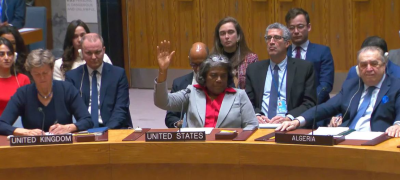In a deeply troubling development, the emergence of so-called Tehreek-e-Taliban Kashmir (TTK) signals a renewed effort by Indian intelligence agency RAW to destabilize Azad Jammu and Kashmir (AJK) and undermine Pakistan’s sovereignty. This latest proxy maneuver has brought new and dangerous dimensions to the already volatile South Asian region, particularly in light of recent counterterrorism successes by Pakistan’s security forces.
Following the highly successful military operations Bunyan-al-Marsous and Marka-e-Haq, and decisively dismantling key terrorist infrastructures within Pakistan, India’s intelligence agencies have recalibrated their approach. They have launched a new front under the guise of the TTK. This new group seeks to create unrest in the peaceful region of AJK by exploiting religious sentiment and manipulating young minds under false promises of Khilafat and an “independent” state.
Historically, Azad Jammu and Kashmir has remained one of the most stable and secure regions in South Asia. With a high literacy rate, low inflation, and affordable access to electricity and essential commodities, AJK has long stood in contrast to the restive and heavily militarized Indian illegally occupied Jammu and Kashmir (IIOJK). India’s narrative, attempting to equate socio-economic instability in AJK with that in IIOJK, has failed spectacularly. As a result, Indian agencies have now turned toward darker tactics, launching clandestine operations to sow discord and fear among the people of AJK.
The central objective of this RAW-backed TTK proxy appears to be psychological warfare, dismoralizing the population of AJK and fracturing their steadfast support for the broader Kashmir freedom movement. But what India fails to understand is that the people of AJK are deeply rooted in the cause of Kashmiri self-determination. For decades, they have sacrificed their lives, homes, and livelihoods, standing like an iron wall against Indian propaganda, military aggression, and diplomatic deception.
The recent killing of four militants, including two from Bagh, AJK, affiliated with the TTK, in Rawalakot has fully exposed the nefarious designs of India and RAW. These individuals, radicalized and misled with promises of religious glory and secession, were involved in the abduction and killing of innocent civilians. They falsely accused Pakistan’s security forces to deflect blame and fan internal unrest. Yet, this deceit was swiftly countered by the vigilance and unity of the local population and Pakistani forces. Their killing not only neutralized an immediate threat but also dismantled a narrative that India worked hard to construct.
The ideological manipulation employed by RAW and its proxies mirror the classical tactics of disinformation and false flag operations, something India has a long history of orchestrating. Take the recent Pahalgam incident, for instance. The tragic killing of tourists was quickly blamed on Pakistan by Prime Minister Narendra Modi without a shred of investigation or credible evidence. This was not an isolated lapse in diplomacy, but a calculated attempt to exploit public sentiment during the Bihar election campaign, to secure Hindutva votes and shift focus from domestic controversies, particularly the growing unrest over the controversial Waqf Board Bill.
This strategy of political diversion through manufactured crisis is a hallmark of the BJP-led regime. When protests erupted against the illegal seizure of Muslim Waqf properties across India, the incident in Pahalgam became a convenient smokescreen. Public discourse shifted overnight, allowing the government to suppress dissent and distract attention from its internal failures.
Furthermore, in the wake of heightened Indo-Pak tensions, India has also attempted to politicize the Indus Waters Treaty, an agreement meant to be above political manipulation. By unilaterally suspending or disrupting water flow to Pakistan, India is weaponizing basic human necessities, once again demonstrating its willingness to forsake international norms in pursuit of narrow political gain.
Despite these aggressive maneuvers, India’s plans have backfired. The people of AJK, long familiar with Indian tactics, rejected the TTK and its ideology outright. The funerals of the slain militants in Bagh were sparsely attended, signaling not only a lack of public sympathy but a complete ideological rejection. Rather than succumbing to disinformation, the people of AJK have remained resilient, united, and clear-eyed about who the real enemy is.
This public awareness and solidarity have been complemented by a robust and measured response from Pakistan’s armed forces. Each Indian act of aggression, be it across the Line of Control or through covert operations, has been met with a firm but defensive countermeasure. Pakistan’s refusal to escalate beyond just retaliation speaks volumes about its commitment to peace, in contrast to India’s desperate attempts to spark conflict.
As the situation evolves, one thing remains abundantly clear: India’s attempts to destabilize AJK through proxies like TTK have failed miserably. The truth has surfaced, and the people of AJK—steadfast in their patriotism and unwavering in their support for the Kashmir cause—have shown the world that no amount of propaganda or manufactured insurgency can undermine their spirit.
In the words of the Holy Quran, “They plan, and Allah plans. And Allah is the best of planners.” India’s sinister plots, despite their sophistication and aggression, will continue to falter in the face of truth, justice, and a united, vigilant population. AJK stands firm—not only as a bastion of peace in South Asia—but as a symbol of unbroken resistance against tyranny, occupation, and foreign subversion.





